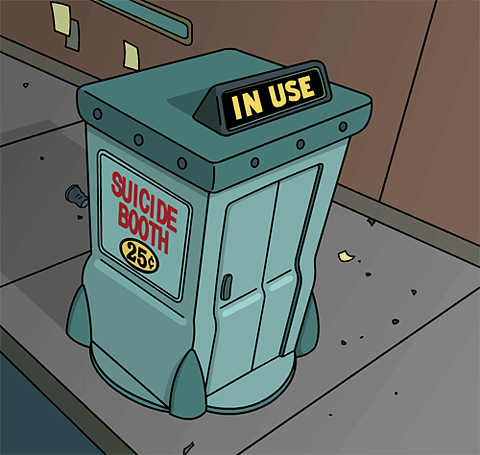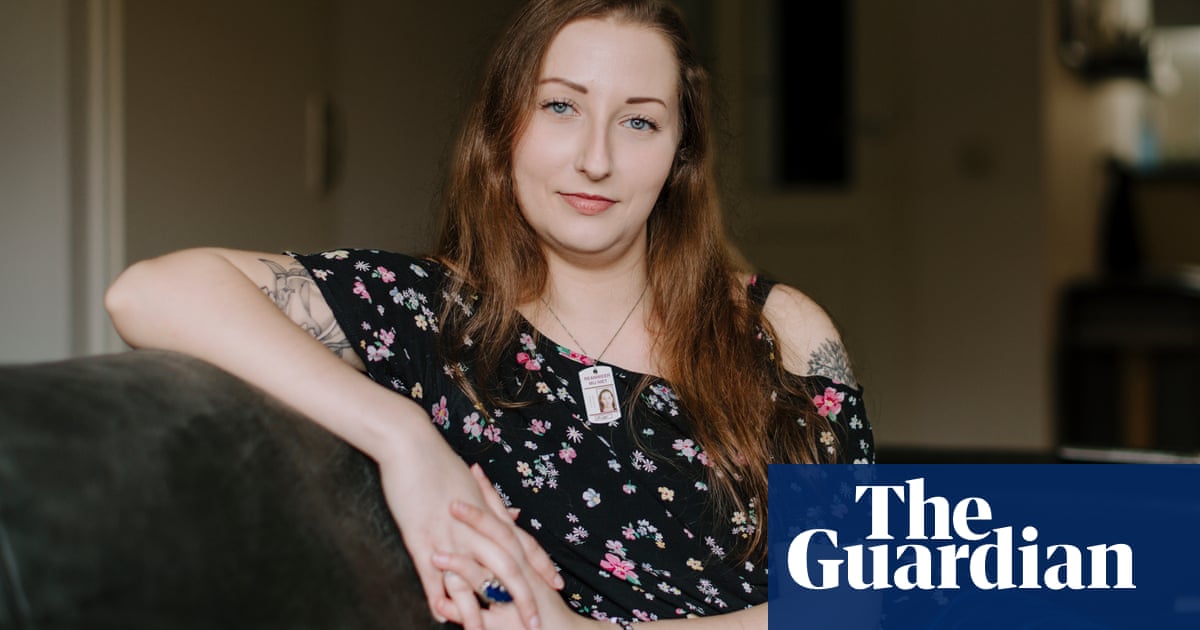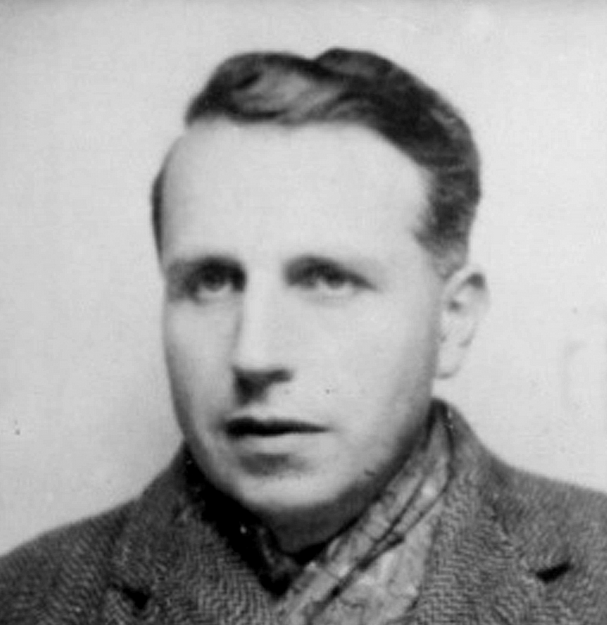“People think that when you’re mentally ill, you can’t think straight, which is insulting,” she told the Guardian. “I understand the fears that some disabled people have about assisted dying, and worries about people being under pressure to die… But in the Netherlands, we’ve had this law for more than 20 years. There are really strict rules, and it’s really safe.”
She embarked on intensive treatments, including talking therapies, medication and more than 30 sessions of electroconvulsive therapy (ECT). “In therapy, I learned a lot about myself and coping mechanisms, but it didn’t fix the main issues. At the beginning of treatment, you start out hopeful. I thought I’d get better. But the longer the treatment goes on, you start losing hope.”
After 10 years, there was “nothing left” in terms of treatment. "I’ve never hesitated about my decision. I have felt guilt – I have a partner, family, friends and I’m not blind to their pain. And I’ve felt scared. But I’m absolutely determined to go through with it.
Honestly and genuinely, I’m glad to see all that she has put into this decision and glad the state is allowing it. Now she doesn’t need to cause further pain to others through a traumatic suicide and she can gain the peace she’s been longing for.
Each day, so many lives are snuffed out of existence without a second thought. She has given this an incredible amount of thought, time, and work.
Rest in peace, Zoraya. 💜
P. S. There’s thousands of live today that want to live. They don’t want to die. And yet their lives are taken away in an instant. Perhaps we should focus on saving them rather than making someone like Zoraya feel even worse.
I can’t understand why so many people are against someone dying with dignity. This is a form of harm reduction for not just the patient, but also their loved ones, and society in general.
Nobody wants to see their loved ones suffer endlessly or needlessly, and this is also a whole lot less traumatic than people committing suicide. Nobody wants the last memory of their loved ones to be the scene of their (potentially messy) suicide.
And that’s not to mention the trauma inflicted on bystanders for some of the more public suicide methods (not to mention that jumping to your death or intentionally walking into/driving into traffic has a decent chance of physically injuring or killing said bystanders).
If this process is undertaken with care and compassion, it’s far less likely to be traumatizing to all involved. And it prevents “spur of the moment” decisions, like many successful suicides are.
You don’t want people jumping in front of a train, but what do you think would happen if this concept were fully embraced by the American for-profit insurance industry? I’m imagining taking my mom to a doctor’s appointment for an expensive treatment and finding tasteful brochures for dying with dignity helpfully placed around the office.
I’m absolutely worried this will get taken advantage of in the US’ hellscape that is their healthcare system, but that doesn’t mean the concept is without merit.
It’s like arguing that cars should not be available for purchase because someone might use one irresponsibly, while forgetting their utility outside of abuse.
In a healthcare system that optimizes outcome instead of profit, having the option to allow someone to choose to end their suffering should not be considered a bad thing.
You haven’t seen all the hospice brochures? You don’t even have to imagine - it’s like the P.C. version of assisted suicide for old people.
Nobody wants to see their loved ones suffer endlessly or needlessly, and this is also a whole lot less traumatic than people committing suicide.
This is people committing suicide, though.
That’s both debatable on a semantic level (is it really suicide if it’s assisted?) and not how I intended the use of the term.
What I tried to say is that this option is less traumatic than non-assisted options for ending your existence and comes with less risk of injury to bystanders to boot.
How is it debatable? If you’re claiming it’s not suicide because it’s assisted, then by that logic it’s murder.
It’s one thing to support the policy, it’s another thing to misrepresent what the policy is. Suicide is still suicide. Is it less disruptive to society? Absolutely. Is it a good policy? Debatably. But it is still suicide? Indisputably. Support it if you will but don’t go around saying that it’s “less traumatic than suicide” as if it isn’t a form of suicide.
We have a great term for the realm between murder and suicide - assistance in dying.
It bridges the gap between the definition of murder (where one party unalives the other party against their consent) and suicide (where one party unalives themselves with intent) by having the person looking to be unalived explicitly expires their intent and consent for the other party to assist them.
I feel as if you’re trying to create a false equivalency to undermine the validity of this option.
And as to whether this is less traumatic than suicide - you have got to be kidding or you’ve never had to deal with the reality of someone committing suicide versus someone choosing assistance in dying.
One generally involves a lot of shock and someone finding a dead body in some state, the other is generally a peaceful affair where loved ones say their goodbyes before the person peacefully falls asleep for the last time.
They are nowhere near the same thing for the survivors and you claiming otherwise is an insult to both. And if you can’t see the difference between these two options I’m frankly done debating this with you.
See, the difference is that I’m not looking at how clean or messy the suicide is, I’m looking at the fact that a suicide occurred. I would have much more respect for you and your position if you were willing to look it in the eye and call it what it is, instead of hiding behind these nonsense euphemisms.
At no point did I make any claims regarding the trauma involved, except to say, “Is it less disruptive to society? Absolutely.” The exact opposite of the position you ascribed to me, in other words.
But trauma and shock are merely side effects of suicide. Symptoms that exist to reflect the awfulness of the event. If a person kills themselves on a deserted island, no one is traumatized or shocked by it, but it is still, factually, a suicide.
I don’t see why you’re reacting so strongly to a simple clarification in terminology. Or rather, I’m beginning to see why, but I wish I didn’t.
That’s not entirely honest - you’re also trying to argue that having this option is not a good or valid option (you called “debatable”) and are trying to steer the conversation by creating a false equivalency between assistance in dying and suicide, which are not the same thing.
I fully agree with your example - someone unaliving themselves on a deserted island committed suicide. Never said they didn’t.
What I said, and what you’re conveniently omitting, is that suicide is an act by an individual, there is no other party to the unaliving. This is not the case in assistance in dying, and there’s very good legal reason why we consider these distinct from eachother, and from murder (to your earlier point).
Even if we forget the traumatic angle I brought up earlier, surely you must see the difference between an act that involves one party and an act that involves two parties with express intent and consent.
What you’re trying to do is the same as arguing masturbation and sex are the same thing because they end with the same result (orgasm).
That’s not entirely honest - you’re also trying to argue that having this option is not a good or valid option (you called “debatable”)
Saying it’s “debatable” is not the same thing as asserting it’s not a good or valid option. It just means that whether it’s good or valid hasn’t been conclusively established.
Assisted suicide is a form or suicide that is assisted. The thing that makes it different between it and regular suicide is that someone else is assisting. You’ve chosen the example of masturbation vs sex because it’s one of the few analogies that would work for you. Tandem skiing is skiing. Assisted murder is murder. Skydiving with an instructor is skydiving.
The onus is on you to present why the addition of an assistant meaningfully changes the nature of the act.
surely you must see the difference between an act that involves one party and an act that involves two parties with express intent and consent.
I see no such thing. Solo suicide involves intent, and there is no need for consent because there isn’t a second person involved. How on earth would the addition of a second person make it meaningfully different? Are you refusing to say the reason because you think it’s obvious, or because it doesn’t exist?
What the fuck is “unaliving”. Are you saying that unironically? If so, it’s staggeringly Orwellian.
And it prevents “spur of the moment” decisions, like many successful suicides are.
It may prevent some, but at least some of the ones experiencing acute issues will still go for the immediate option. The bureaucracy of it will add a layer that I suspect will deter some. If it takes months or years, people are just going to find their own way.
I’m not suggesting that we just help any person right off the street. I think the government has duty of care once they are involved. I’m just saying the reality is that many will still choose not to take this alternative path.
I feel like a lot of replies here have the same “every live is precious and needs to be protected at all costs”-vibe as you get with a lot of anti-abortion arguments.
You are casually ceding the “not wanting people to kill themselves” ground to the right while also allowing them to paint themselves as caring about human lives when in reality they just want to control women’s bodies and protect fetuses, not people.
“Every life is valuable” is obviously a left-wing stance because the left are the ones who actually care about people’s lives, even when they’re disabled, downtrodden, and painted as burdens on society.
I have no clue why you’re trying to push my argument into a political direction.
Is abortion not a political issue? What do you mean by that?
It is a political issue because people want it to be one. My comment was about the way the arguments sound, not about what political side says what.
Well, I was trying to push it in a political direction because I don’t like my beliefs being compared to anti-abortionists based on vibes and appearances. It’s necessary to engage more critically with the issue to demonstrate that any apparent similarities are just superficial.
There is no objective division between political and non-political. This is a question about government policy on which people are divided, so to me it’s inherently a political issue.
I don’t know what to tell you. It seems to me like you’re critical about assisted suicide but are pro choice when it comes to abortions.
In my opinion those two things are different sides of the same coin. Regardless of politics.
I don’t believe that they are different sides of the same coin. I see very little in common between the two.
From my perspective, it would be like saying opposition to war or the death penalty is just like being opposed to abortion, because anti-choice people claim to value life.
Oh right wing def feel every life has value.
Just less value then everybodies right not to be forced to pay for them.
They are fairly open about the value of a states non right to force an indevidual to fund anothers life. Being more important then anything.
That the value for all lives is based on either an indeviduals ability to self support. Or other indeviduals willingness to offer charity.
It is forced charity usinging the states ability to use violence they consider a greater crime then any % of society not wanting to support the lives of those in need.
Its not value or no value. But priority of those values that differs.
IE states using its same power of violence to kill forign people who might disagree with the state. Can be argued with no worry about the value of those actions. They have no issue with not choosing to fund defence or the actual state ability to use violence to enforce its laws.
Just the state taking money via potential force to provide life to US citizens in need.
Exactly. If we’re talking about vibes, seeking to normalize suicide for people with disabilities gives me the same vibes as far-right eugenics stuff.
Until they are asked to do something to help, then it’s crickets
Unsolicited Conservative: “Has she tried to put God on that wound? If only she was religious…”
Dude, doctors will even try homeopathy before resorting to euthanasia.
On the appointed day, the medical team will come to Ter Beek’s house. “They’ll start by giving me a sedative, and won’t give me the drugs that stop my heart until I’m in a coma. For me, it will be like falling asleep. My partner will be there, but I’ve told him it’s OK if he needs to leave the room before the moment of death,” she said.
this struck me as a bit odd. In switzerland they cannot „act“, they can only prepare the drugs etc, but you have to do the final act by yourself, otherwise its considered murder.
interesting that they handle it differently
Actually both options are possible here in the Netherlands, it’s a matter of preference of the patient. In both cases a doctor will be present, whom will also supply the drugs if a patient chooses to take them themselves.
This case is incredible rare though, it is already extremely hard to have a euthanasia request granted for mental issues at an older age, let alone someone so young.
A bit more background on ‘the aftermath’: after the euthanasia took place a coroner will establish that this was indeed the case and once that is done the public prosecutor needs to give permission before the remains may be buried or cremated.
Also, the coroner will send the report of both the physician who approved and performed the euthanasia and that of the SCEN-doctor, who performed the obligatory 2nd opinion mentioned in the article, to a special committee who will check if everything went by the book. Not only the procedure leading up to the euthanasia, but also the act of the euthanasia itself. If there are doubts about whether or not all means of treatment were exhausted and if there really was undue and indefinite suffering, or if there are any doubts if the patient really wanted to go through with the procedure at ‘the moment supreme’, a doctor can be held accountable for that. Fortunately that is rare, as the whole procedure is not taken lightly.
This. Is. Awesome.
Good on her; for doing whatever was reasonable. For making an informed decision. For following the approved methods. And for sticking it out.
We “put down” pets when their suffering is too much, why can’t we let people make that same decision for themselves? Luckily the Dutch can.
I hope assisted suicide becomes more common. For everyone. Experience of conscious beings is the most important thing for me. But governments view people as manpower which is depressing.
Suicide isn’t “awesome,” and “good on her for sticking it out” in the context of suicide would pass as ironic edgelord humor 20 years ago on 4chan.
It’s terrifying that the exact same action, when done in a way that’s “clean” and legal makes people say things like that that presumably nobody would say otherwise. Setting up a legal pathway for suicide doesn’t change what it is.
Setting up a legal pathway for suicide helps people maintain agency and also allows for those with curable conditions to take the time to seek the help they really need thanks to the ample medical oversight.
I don’t think that it’s awesome. Having read the article, I think that she has full capacity to make the decision and am happy that she is doing so in a medically supported way. Botched suicide attempts can cause devastating disabilities. And I always hate when a family member finds the body of someone who died by suicide.
I don’t mind if you think it’s a good policy or better than the alternative, but I’m always going to push back against people describing suicide as “awesome.”
It isn’t awesome that her life is so miserable that, even though she has spent decades exhausting all medical treatment options, she still wants to die. What is awesome is that there is a comprehensive and humane way for her to end her suffering that assures this isn’t a rash decision, gives her loved ones a time frame to come to terms with it, and provides a situation where they do not have to deal with the aftermath of doing it herself.
Believe it or not, there are a lot of people out there who’s lives are nothing but pain and suffering. Pain and suffering despite seeking out all possible means to relieve themselves of this pain, and finding that none exist. Pain that isn’t going to end, and not having a life worth living to look forward to. There are also a lot of people out there that have loved these people and realized that, though it hurts them, the suffering the person they love is going through is far worse, and will not get better. Sometimes it is more selfish to demand someone not end their life than it is for them to do so.
You clearly have not actually been in this position, even if you have been suicidal before. Maybe you should admit that you don’t know everything about this, and let people have a humane way to stop their suffering.
I will never in a million years be convinced that “suicide is awesome” is a position that I should adopt or respect, sorry not sorry.
Clearly you don’t put nuance into it, and don’t care to. Enjoy (or hate) your black and white life.
You still don’t get it, they saying aren’t suicide is awesome. So you continue on with your misinterpretation.
Maybe if the medical industrial complex surrounding mental health wasn’t so profit-hungry and dehumanising, then she might not think that death is an option that she needs to take.
Imagine thinking your life belongs to you, and then having to get permission to end it without suffering
There are other options other than this one that requires permission. The article mentions her reasons to choose this method.
From the article:
She had thought about taking her own life but the violent death by suicide of a schoolfriend and its impact on the girl’s family deterred her.
Whether we agree with her or not, it’s her decision.
Jumping off bridges is free, no?
Clearly, this is about a more complex social issue/concern.
I think it’s technically illegal in most countries (suicide I mean, not specifically the bridge variety).
You’re asking someone else to take your life and expect them to do so no questions asked…?
There are in fact many questions asked, and any doctor can refuse for any reason.

I disagree with her decision for a few reasons but I’ll defend her right to choose.
There are always going to be people who don’t want to be here anymore for whatever reason, and so the government needs to provide a humane way of dealing with these situations.
Like with abortion, access to controlled procedures with trained professionals reduces harm. Restricting access to safe procedures will cause more harm than it prevents.
Definitely sad. Possibly the wrong choice for her, possibly the right choice, but it’s her choice to make despite how I might feel about it.
I feel sorry for her partner watching your loved one die is fucking brutal.
Hope they get supported in the aftermath.
What leads someone in her situation to decide to go down the euthanasia route rather than regular suicide which doesn’t need any approval?
It’s a morbid thought but euthanasia approval seems like it could often be a slow drawn out process, and someone able-bodied wouldn’t necessarily need it.
For me I don’t want someone to have to find me and deal with the aftermath. I’d much rather it be a planned thing so no one else has to suffer just because I needed to end it all. Unfortunately I’m in a country where that’s not possible so when the time comes I need to go deep into a forest or something.
-
making someone else do it because although you want it done, you can’t bring yourself to do it when the time comes
-
making someone else do it because you don’t want to fuck it up and deal with the rather significant aftermath after waking up 3 hours later with only a pumped stomach
-
This is mentioned in the article. She chose euthanasia because someone she knew growing up committed suicide and she saw how it devastated the family.
Also I imagine the anxiety about messing up without professional expertise would be awful. Plus worrying about legal repercussions for any assistance. Etc. etc.
Its still suicide.
Again, no, it’s assisted death. Quite different.
Idk, i am torn on this. Obviously people have had depression with suicidal tendencies since the dawn of humanity, but i feel like most modern suicides come from the failings of oir current systems. I am Zoraya’s age and have struggled with depression and finding a reason to live for well over a decade. Euthanisia should be available to anyone with a terminal condition, but she still has her whole lofe ahead of her. It saddens me that the state has decided it is better to let her have a painless suicide rather than address the issues that make her life no longer worth living. To me there is no excuse for otherwise healthy adults in the prime of their lives to feel hopeless, but that is the society we have collectively decided we want to live in.
I’m glad she will be able to die on her own terms, but there is no excuse for this to be her only option. Our society has failed Zoraya and countless people like her.
I have no doubts about her sincerity to die. I just think that a better society would have been able to find her a reason to live. She is absolutely in the right here, and has done nothing wrong. It’s her government which has failed her.
Why are you assuming that her mental situation developed as a result of society or “the government”? The article mentions that her conditions are chronic and started developing in early childhood. People can have mental conditions without any particular external trigger.
She has trauma, according to the article. Most traumas are largely systemic issues that have been improperly handled.
Fair enough — though the trauma is also just one of the named conditions, and we have no idea what that trauma was caused by.
Depression and anxiety are also heavily influenced by societal conditions. She would probably still have to deal with these issues but to a much less QoL damaging extent under a more humane system.
I read somewhere that we have way more suicides in general than before. That seemed plausiblevso I didn’t look it up proper. Also, whatever her problem is, that’s not what assisted suicide is for , she is abusing the system. The backlash from this improper use will impede access for the people who really need it.
She’s run out of treatment options and is still symptomatic to the point that her quality of life is severely diminished.
It wasn’t an overnight decision and has been reviewed by multiple medical teams, over 3 and a half years. All stated in the article.
I’ve been in and out of therapy and on and off meds for 32 years, nothing has helped, I wish this was an option. God speed to her.
My arguements against this are the same as my arguements against the death penalty.
People make mistakes, even those who wish to die. Im not trusting the state with the power to kill me, even if its by assisted suicide.
I only support this for people who are terminally ill and about to die.
I get where you’re going but on the other side of your fear of the state you are denied release from what could be immense suffering because the state deems it.
Body autonomy is in my opinion a very crucial part of human rights even if the decisions is ultimately a mistake. You can’t really stop people from committing suicide, all you can do is make it less humane.
I get where you’re going but on the other side of your fear of the state you are denied release from what could be immense suffering because the state deems it.
Often times its the state causing the immense suffering…
Modern psychology really misses the mark in the sense often times its just treating the symptoms so they can get you back to work as quickly as possible.
Im more interested in restorative justice with psychology, as well as treating the symptoms; we should be treating the causes too…
Body autonomy is a myth, ‘biopower’ is a concept that has been utilized since the industrial age, the role of the structres of society are to keep you healthy enough to work.
Regardless, I caveeted that yes, if you’re physically about to die and under immense suffering id support these actions. In a privatesed health system with an aging demographic though you cannot prevent abuses of power from happening with assisted suicide; family members pressuring mentally ill family members into an early suicide to remove there care burden, people doing it for inheritance, people thinking they have a uncurable mental illness when in reality the effective treatments are denied to them (I think of PTSD war sufferers denied MDMA which is proven 90%+ effective in treating PTSD who go onto kill themselves…)
There are so many ethical concerns with this stuff that only takes a little foresight to see how bad it would be in reality.
This comment should framed and hung in the office of psychologists














